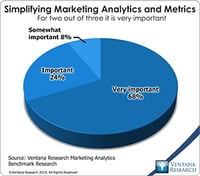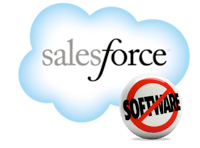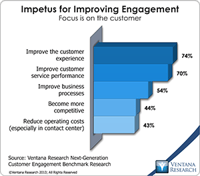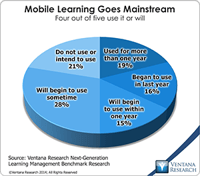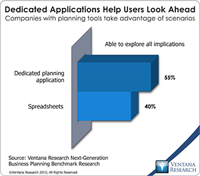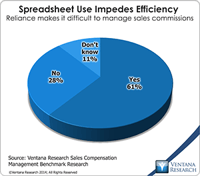The relevance of marketing to an organization depends on planning and performance measured against it. In writing about marketing management I have observed the marketing mayhem that can occur but also have noted that organizations that take marketing performance management seriously are in better position to assess their efforts in relation to goals and outcomes. I have a little experience in having been a CMO and VP Marketing in my career and know how frantic it can be to managing marketing....
Read More
Topics:
Business Analytics,
Uncategorized,
CMO,
Financial Performance Management (FPM)
Managing marketing performance is anything but simple. It requires establishing a unified approach to assess the outcomes of initiatives and projects and compare results with investments in marketing people and campaigns. In general, while performance management has been conducted effectively at the corporate levels, it has been a challenge for most lines of business, marketing departments included.
Read More
Topics:
Social Media,
Marketing,
Marketing Performance Management,
Marketing Planning,
Operational Performance Management (OPM),
Business Analytics,
Business Intelligence,
Uncategorized,
Business Performance Management (BPM),
CMO,
Customer Performance Management (CPM),
Demand Generation,
Sales Performance Management (SPM)
Organizations in all industries face various difficulties in managing product information. The most serious is providing complete, engaging information to consumers and customers on the internet. Newly developed products, mergers and acquisitions, changes to pricing and promotions in online commerce spur business growth, but these factors also increase the amount and complexity of product-related data and content. In addition the digital economy offers a new generation of services that are sold...
Read More
Topics:
Big Data,
Operational Performance Management (OPM),
PIM, Product Information Management, Sales, Market,
Business Analytics,
Cloud Computing,
Uncategorized,
Business Performance Management (BPM),
Customer Performance Management (CPM),
Financial Performance Management (FPM),
Information Management (IM),
Information Optimization,
Sales Performance Management (SPM),
Supply Chain Performance Management (SCPM)
Through a federal rule referred to as “Overtime Rule” and part of Title 29 regulations was issued on May 18th, 2016 by the Department of Labor (DOL), the Obama administration now mandates that unless they meet criteria for exemption, employees paid less than $47,476 ($22.825 per hour) are entitled to overtime pay when they work more than 40 hours per week. The rule change, which goes into effective on December 1, 2016, is intended to apply to executive, administrative and professional...
Read More
Topics:
Governance,
Human Capital,
Human Capital Management,
Operational Performance Management (OPM),
Overtime Rule,
Part 541,
POTUS,
Wage and Labor,
Business Analytics,
Cloud Computing,
Governance, Risk & Compliance (GRC),
Uncategorized,
Contingent Labor,
Customer Performance Management (CPM),
Department of Labor,
Final Rule,
Financial Performance Management (FPM),
FLSA,
President Obama,
Sales Performance Management (SPM),
Supply Chain Performance Management (SCPM),
Workforce Management,
Workforce Performance Management (WPM),
Workforce Planning
I have been meaning to write about Salesforce since its Dreamforce 2015 conference. Salesforce provides a platform, tools and applications for business and IT who claims to be the ‘no software’ company which as you will read is exactly what happened on May 10th. Heck, Salesforce is making a lot of advances on its platform, its applications and even with Analytics and the Internet of Things. These changes are at the center of what at our analyst firm calls digital business innovation. Much of...
Read More
Topics:
Sales,
Salesforce.com,
Marketing,
NA14,
Analytics,
Business Analytics,
Business Collaboration,
Business Mobility,
Cloud Computing,
Customer Service,
IOT,
CRM,
Customer Performance Management (CPM),
Sales Performance Management (SPM)
Organizations are facing a digital transformation, as I have written, that is rapidly changing the applications and services that businesses use to operate and deliver information. This new digital generation addresses the expectations of consumers and business partners for information and service in real time. One example of it is enterprise messaging. Recently I wrote about the shift to this technology and the challenges it poses for organizations that lack sufficient skills. However, new...
Read More
Topics:
Big Data,
Social Media,
Enterprise messaging, Internet of Things, IoT, mid,
Operational Performance Management (OPM),
Business Analytics,
Business Collaboration,
Cloud Computing,
Governance, Risk & Compliance (GRC),
Uncategorized,
Business Performance Management (BPM),
Customer Performance Management (CPM),
Financial Performance Management (FPM),
Information Management (IM),
Sales Performance Management (SPM),
Supply Chain Performance Management (SCPM)
As the global economy transforms into a world of digital services that cross industries, including those that provide value-added services for physical products, managing the complications that arise from digital browsing, selection and purchasing of goods, as well as activation, billing and servicing of accounts, becomes a challenge. Organizations have to not just engage customers but provide satisfying experiences that keep them coming back. Our benchmark research on next-generation customer...
Read More
Topics:
Operational Performance Management (OPM),
Subscription, Recurring Revenue, Zuora,
Business Analytics,
Uncategorized,
Business Performance Management (BPM),
Customer Performance Management (CPM),
Financial Performance Management (FPM),
Sales Performance Management (SPM)
The learning management system (LMS) offers opportunity for organizations to progressively enhance the effectiveness of their workforce. An advanced LMS can be more than a digital version of an organization’s training programs for specific jobs or to achieve compliance with policies and regulations. It can provide dynamic yet informal learning that business units can create, deploy and sustain through their own efforts. Last year I outlined the benefits of this new generation of learning...
Read More
Topics:
Human Capital,
LMS,
Operational Performance Management (OPM),
Business Analytics,
Business Collaboration,
Cloud Computing,
Uncategorized,
Business Performance Management (BPM),
Customer Performance Management (CPM),
Financial Performance Management (FPM),
Sales Performance Management (SPM),
Supply Chain Performance Management (SCPM)
I hope this title captures your attention; I’m trying to make a point about the chaos going on in managing and operating marketing. What marketing needs in 2016 is to manage and optimize its efforts in a more unified manner. This perspective kicks off a new series on the challenges for marketing to automate or execute tasks and manage toward maximum performance. We all know that the craft of marketing is in need of significant transformation, from the CMO throughout the entire marketing...
Read More
Topics:
Big Data,
Predictive Analytics,
Social Media,
Operational Performance Management (OPM),
Business Analytics,
Business Collaboration,
Business Intelligence,
Cloud Computing,
Location Intelligence,
Operational Intelligence,
Uncategorized,
Business Performance Management (BPM),
CMO,
Customer Performance Management (CPM),
Financial Performance Management (FPM),
Information Applications (IA),
Information Optimization,
Sales Performance Management (SPM)
For several years I have been advocating that sales organizations adapt their processes and applications to optimize both sales performance and the customer experience. For details see my research agenda for last year. However, it appears that not many sales organizations have responded to this challenge; many can barely maintain their quarterly sales forecasts and monthly pipeline, track progress toward quotas and ensure that sales commissions are processed promptly and paid accurately. A...
Read More
Topics:
Big Data,
Predictive Analytics,
Operational Performance Management (OPM),
Business Analytics,
Business Collaboration,
Uncategorized,
Business Performance Management (BPM),
Customer Performance Management (CPM),
Financial Performance Management (FPM),
Sales, SFA, SPM, Sales Performance Management, Sal


